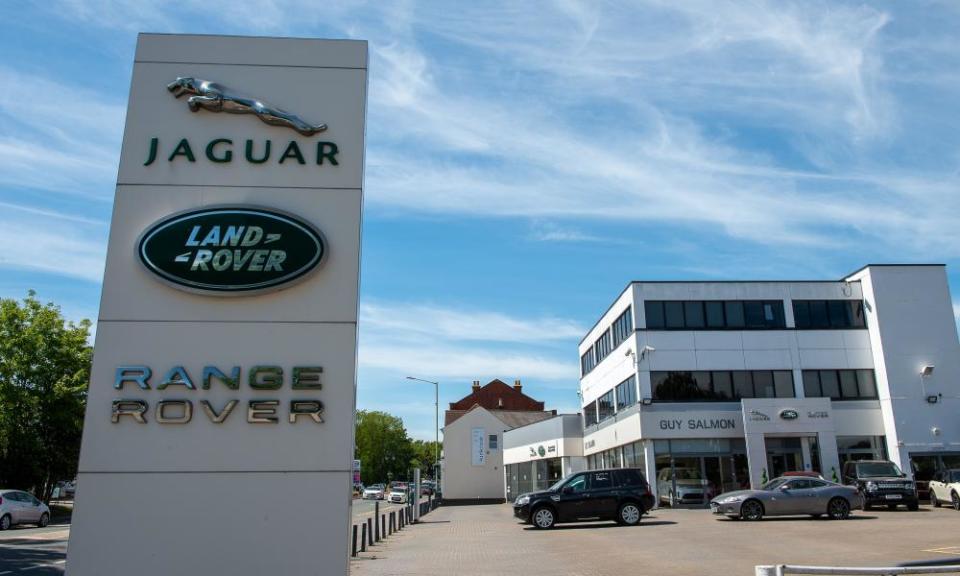Jaguar Land Rover in talks over '£1bn-plus' state loan

Jaguar Land Rover, Britain’s largest carmaker, has asked for a support package from the government to help it survive the coronavirus pandemic.
Talks are ongoing with the Department for Business, Energy and Industrial Strategy (BEIS), and the department said it would not provide a running commentary of the discussions, after Sky reported that the bespoke loan request was in excess of £1bn.
JLR said it was “in regular discussion with government on a whole range of matters and the content of our private discussions remains confidential”. It described suggestions that the amount of money being sought was closer to £2bn as “inaccurate and speculative”.
Falling demand because of the lockdown has hit the entire automotive sector. According to Tim Lawrence, an industry analyst, returning demand in China has encouraged JLR to restart production.
Last month JLR said retail sales for the fourth quarter, ending 31 March, fell by more than 30%, to 110,000 vehicles. In 2018 it sold about 600,000 vehicles. Sky reported that JLR ended the last financial year with cash and investments of £3.6bn and had access to up to £1.9bn in credit.
Last summer the company secured £500m in government-guaranteed loans in a deal with UK Export Finance to help accelerate electrification after it reported a £3.6bn annual loss.
Lawrence said: “Most carmakers are burning through large amounts of cash every day, primarily because of the cost of maintaining and running their operations, despite furloughing a lot of people.
“Demand in China is what’s encouraging JLR to restart production but they have to look at this in terms of the next one to two years, and models show demand is not going to come back to pre-pandemic levels.”
JLR, owned by the Indian multinational Tata Motors, said its CEO, board and leadership team had “partially deferred salary payments” for three months after it was reported that the shutdown of production was estimated to be costing the company in the region of £1bn a month.
JLR employs approximately 38,000 people in the UK and about 18,000 have been furloughed, the company confirmed. Lawrence said carmakers could reduce outgoings only to a certain extent because they had to keep suppliers afloat while maintaining some operations.
JLR’s Solihull factory reopened on Monday on a single shift with 2,000 employees, Coventry Live reported. Rich Baker, the corporate affairs manager for Soilhull, told the website: “The government suggests people monitor their temperature at home and we’re encouraging people to do the same thing as well.
“We’re encouraging all our employees to take ownership that if you’re protecting yourself, you’re protecting others.”
It operates another two main production sites, at Castle Bromwich in the Midlands, which has partially reopened, and Halewood on Merseyside, which remains closed.
A government spokesperson said: “The government is in regular contact with the car manufacturing sector to assist them through this crisis. We recognise the challenges facing the industry as a result of coronavirus and firms can draw upon the unprecedented package of measures, including schemes to raise capital, flexibilities with tax bills, and financial support for employees.”

 Yahoo Finance
Yahoo Finance 